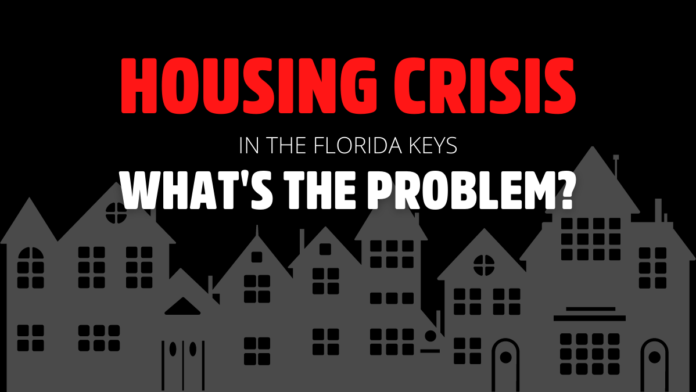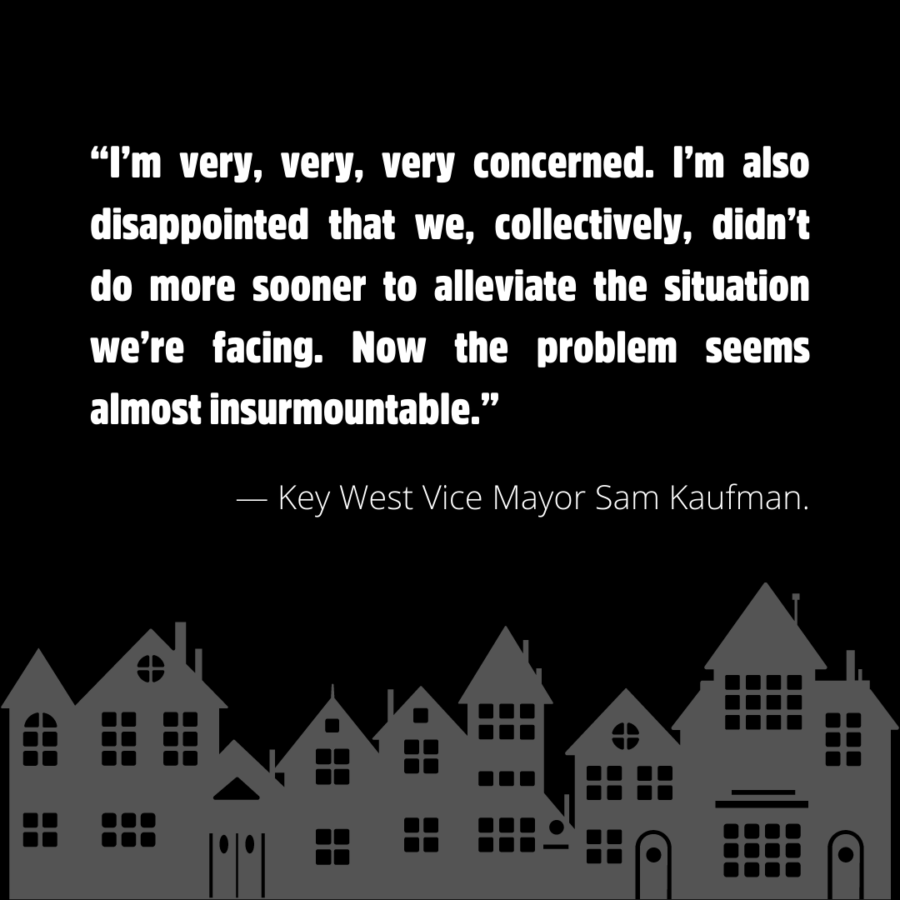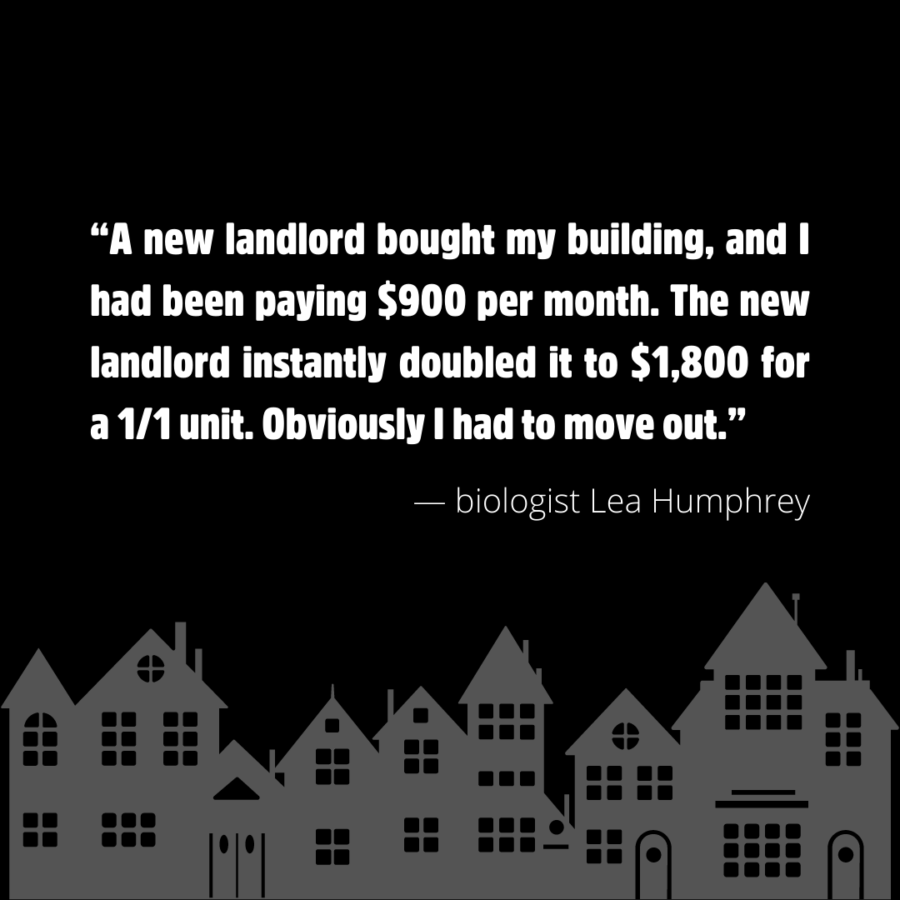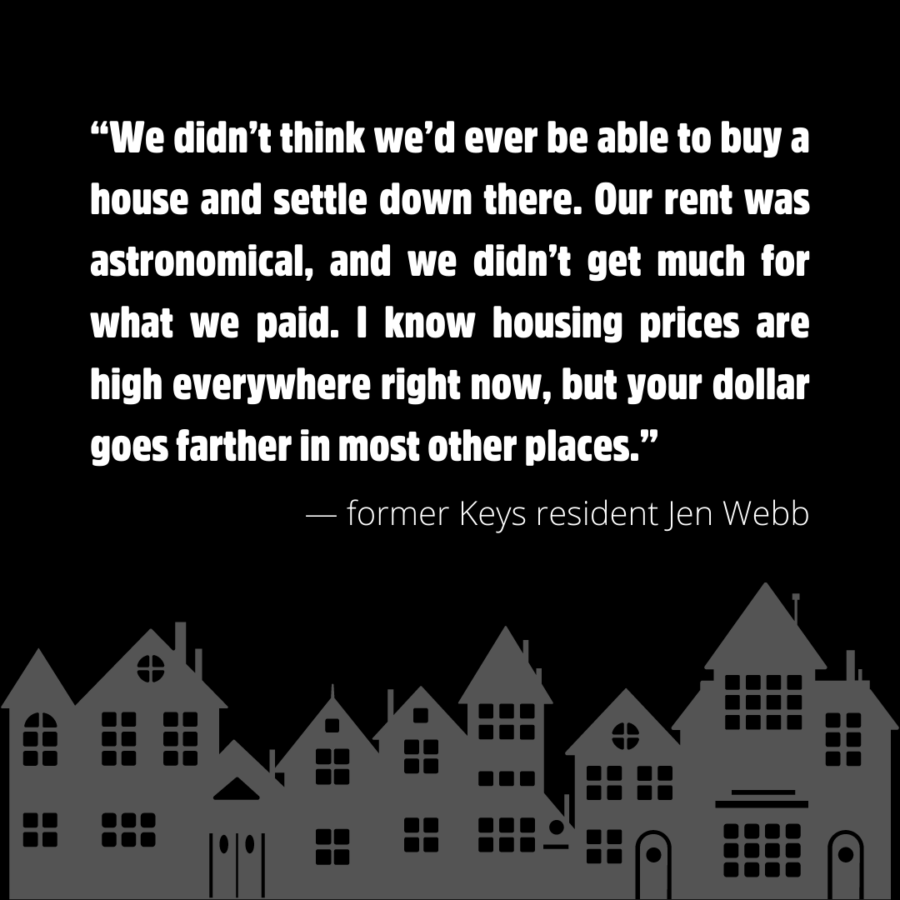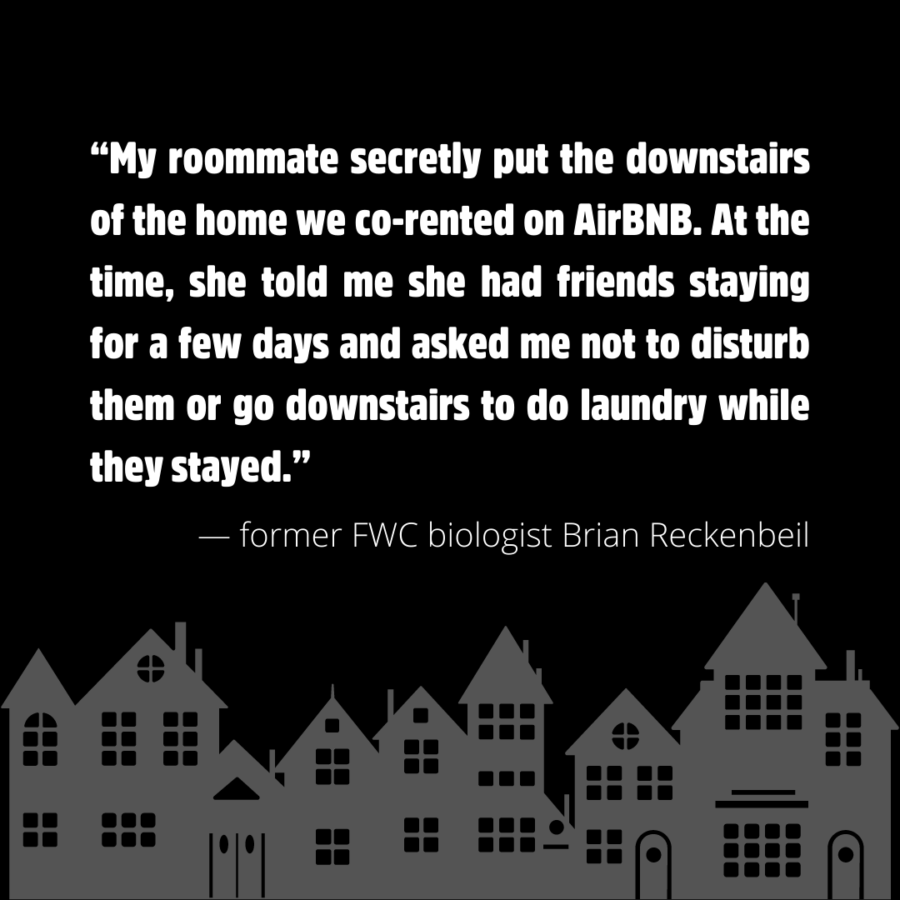Housing is the largest single challenge facing Florida Keys residents and has been for decades. With scarce buildable land, strict height restrictions, sky-high property values, second homes that sit empty most of the year and a proliferation of vacation rentals, many full-time workers no longer can afford to live or rent in the island chain, much less buy a home.
Over the next three weeks, Keys Weekly tackles the housing crisis by identifying the problem, examining its causes and seeking solutions.
By Mandy Miles, Jim McCarthy, Alex Rickert and Charlotte Twine
What happens to a tourist town when local workers can’t afford to live there? The Florida Keys are learning the answer the hard way. It’s not the only U.S. community facing a housing crisis, but the Keys have been dealing with it for longer than most other communities, given the scarcity of available land here. Suburban sprawl can’t happen, because there’s nowhere to spread to.
The sky-high housing market makes home ownership impossible for most workers and the proliferation of vacation rentals has eliminated thousands of long-term leases. Landlords realize they can get $2,400 a month renting their apartment to a working resident, or triple that by renting it for a month to a tourist. They do the math, then take some photos and post their Keys home on a vacation rental website like AirBnB or VRBO.
Add to that the state legislature’s refusal to allow cities and counties to regulate their own vacation rentals, and the municipalities’ refusal to consistently punish rental law violators with penalties harsh enough to be a deterrent.
“Personally, I believe in draconian enforcement,” Marathon Realtor Josh Mothner said. “Enforcement of (vacation rental) rules with real impact. And that’s something that we seem to refuse to do, for whatever reason. The point is that you have to make it painful to break the rules. Right now, it’s not.”
Sam Holland, a Key West native who owns a popular guesthouse and several other businesses, agreed with Mothner.
“Right now, the fines being levied against rental violators aren’t a deterrent; they’re just a cost of doing business.
“I really don’t know where this all ends up. It’s just going to get tougher and tougher for people to live here,” Holland said.
And tougher and tougher for employers to find workers.
“I’m very, very, very concerned. I’m also disappointed that we, collectively, didn’t do more sooner to alleviate the situation we’re facing. Now the problem seems almost insurmountable,” said Key West vice mayor Sam Kaufman.
His statements summarize what many workers, employers and elected officials are now feeling.
For thousands of permanent, working Keys residents, an annual lease is a lifeline, a one-year stay of execution. It’s often all that stands between a continued life in the Keys community they love and a reluctant departure to places unknown. Renters live in fear of getting “the call”: a 50% rent hike; the property’s being sold; or, as is increasingly common, the property’s becoming a vacation rental through AirBnB, VRBO or any other rental platform.
Not all landlords are trying to suck every dollar out of their properties, though. Increases in insurance costs, maintenance repairs, property taxes and interest have some well-meaning landlords in a tough position, leaving them no option but to increase rent.
The mass exodus of year-round working residents, most of whom rent a house, apartment, mobile home or even a boat, has serious implications for local businesses, because no one is replacing the workers who leave the Keys.
Once an out-of-town applicant is offered a job in the Keys, they search online to find a place to live and quickly realize the salary they’ve been offered isn’t sufficient to pay rent, much less a mortgage.
“We’ve had employees who are very interested in coming to work for us, but then they realize they can’t find a place to live,” said Rita Irwin, CEO of Dolphin Research Center and chair of the Tourist Development Council board.
Jason and Dawn Basler owned Island Time Day Spa in Tavernier. They said they’d get roughly 30 calls a day from clients wanting to book a massage. The problem? They couldn’t find a massage therapist. “We had been looking for a massage therapist for eight weeks and (had) zero applications,” the Baslers said.
Island Time Day Spa ended up closing. The Baslers put their Key Largo home up for sale, bought 60 acres of property in East Tennessee, built a new house and started a food truck business. “We’re crushing it up here,” Jason Basler said.
In Key West, a Circle K gas station and convenience store that’s typically open 24 hours a day was recently closed before 7 p.m. A sign on the door read, “Closed because we have no staff.”
Several Florida Keys restaurants are no longer serving breakfast due to the staffing issues, and many businesses are closing early or altogether.
At the Monroe County Sheriff’s Office, Sheriff Rick Ramsay has taken staffing matters into his own hands by installing a bunkhouse on sheriff’s office property on Stock Island in the Lower Keys. Several patrol deputies and jail deputies live in more affordable housing on the mainland in Homestead or Florida City. They’ll commute to the Lower Keys, work for three or four days while sleeping in the bunkhouse, then return home for their days off, Ramsay has said.
Clearly, the Florida Keys are facing a daunting problem. Next week, the Keys Weekly will take an in-depth look at the causes of our housing crisis: empty second homes, the profitability and proliferation of vacation rentals, ineffective enforcement of rental law violators and state preemption of local regulations. Is there a light at the end of the tunnel, or is it an oncoming train? That’ll be examined in week 3.









